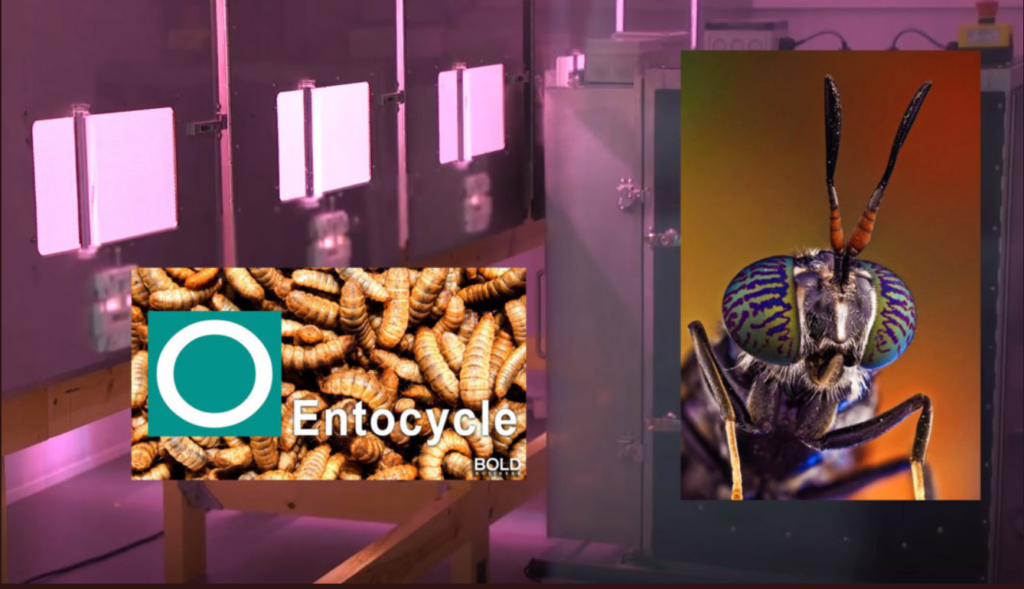According to the World Economic Forum, shifting to eating insects is a way to change the way we eat. Here is a video which was uploaded on its website, about a London insect farm. Here is what their video says, while they interview Kieran Whitaker, an insect farmer, whose statements are in italics. The rest are captions that the WEF inserted:
“This innovative urban farm is located in one of the world’s largest cities. ‘It’s not normal that you try and create a high-technology company that’s farming millions of insects right in the heart of London. But insects are just nature’s perfect up-cycling machines that create organic, natural protein that we can feed to animals and eventually maybe humans. What people don’t realise is there’s a huge disconnect between what we eat and how we feed what we eat. All farmed fish that we create are dependent upon wild-caught fish to feed them. We feed fish to chickens. All animals need to eat fats and proteins to grow just like we do. Now these proteins come from two sources traditionally – that’s fishmeal and soya protein. And soya protein is one of the biggest causes of deforestation in the rain forest.’ Soy protein takes up an area three times the size of Germany. ‘And fishmeal means that we are dredging our oceans empty of small pelagic fish which are the base of the global food web.’ Less than half of small fish caught for animal feed are responsibly sourced. ‘There’s only so much rainforest we can cut down. There’s only so much oceans that we can actually deplete until we get to a really dangerous pinch point.’ Globally, 30% of wild fish stocks are overexploited and 60% are fully fished. ‘We have the dual forces of a growing population with an increase in demand for protein. There’s a moment in your life when you just think enough is enough, and you have to do something about it, so I started Entocycle. We are using black soldier flies.’ Black soldier flies are a harmless naturalised species. ‘Each female lays a thousand eggs and in nature 99.9% of them will be eaten. However, we are able to conserve them and then utilise them into a full closed-loop system. We feed the larvae on food waste such as brewery grains and coffee waste, and they consume that and convert it into both protein to feed animals and fertilisers to grow more plants out of the same system.’ The larvae can be harvested after just 6 days. ‘So actually being able to tackle not only the problem of deforestation and kind of emptying oceans, but we can also tackle the food waste.’ A third of all food produced globally is lost or wasted. ‘The farmers of tomorrow are the engineers of today. We’ve created specialist chambers to look after the insects in their different life cycles. We can stack this 4 metres high and as many kilometres long as you like.’ Entocycle plan to expand to other cities in the UK and beyond. ‘We have automation systems that are modulated and run by themselves 24 hours a day, 365 days a year in any environmental condition and that’s vitally important to feeding a growing population.’ Farmed insects are not just food for livestock and fish. We can eat them too. ‘Insects are becoming a trend. The Western diet has to kind of shift and change. And most importantly it’s natural, it’s normal and it’s the way that we have to feed the future.’ More than 2 billion people already eat insects regularly. ‘We’re facing big global challenges and people don’t believe that they can make a change. But then you really, really can because you making a change is the only change you can really make. When it timeses by 9 billion people, it makes a fundamental difference to the way that we live in this planet.’ It’s our planet. We can choose to eat sustainably.”
https://www.weforum.org/videos/this-london-insect-farm-is-changing-the-way-we-eat

